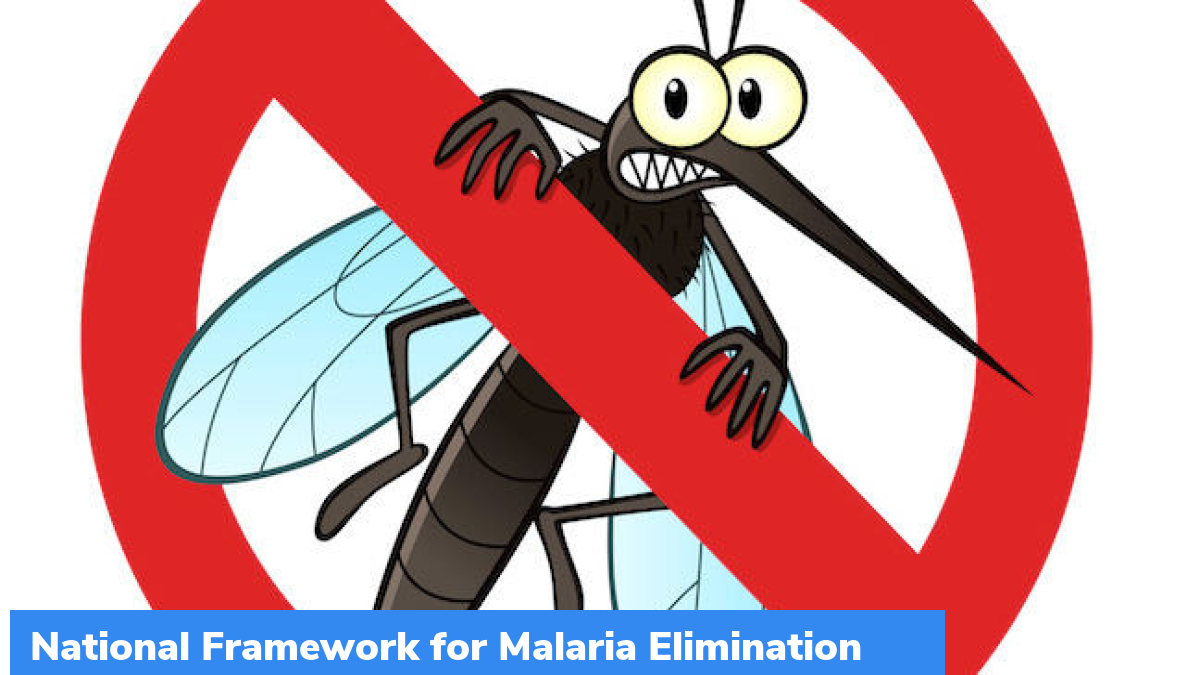National Framework for Malaria Elimination
The National Framework for Malaria Elimination (NFME) 2016-2030 outlines the strategies of India to eliminate the disease by the year 2030. This framework has been developed with the aim of eliminating malaria from the country and contributing to improved quality of life, health, and poverty alleviation.
Overview:
- The NFME defines objectives, goals, targets, strategies, and timelines that will serve as a roadmap for planning and advocating malaria elimination in India in a phased manner.
- As per the respective epidemiological situation of the States and the UTs, necessary guidelines are being rolled out.
- The NFME is in line with the Asia Pacific Leaders Malaria Alliance Malaria Elimination Roadmap and the WHO Global Technical Strategy for Malaria 2016–2030 (GTS).
Goals of the NFME
The goals are to:
- Eliminate malaria (zero indigenous cases) across India by 2030
- Maintain malaria-free status in the areas where the transmission of malaria has been interrupted and prevent malaria re-introduction.
Objectives of the NFME
- Elimination of malaria from all low (Category 1) and moderate (Category 2) UTs and states by 2022
- Reducing malaria incidence to less than 1 case per 1000 in all UTs and States and eliminating malaria by 2024 in at least 31 states and UTs
- By 2027, the indigenous transmission of malaria must be eliminated in all UTs and States (Category 3)
- Preventing the re-establishment of local malaria transmission in areas where it has been eliminated so as to maintain a malaria-free status in India by 2030.
Strategic approaches
The phasing of the programme must be done considering the varying malaria endemicity across the country. The States and the UTs must be classified based on API as the primary criterion as
- Category 0- Prevention of the reintroduction phase
- Category 1- The elimination phase
- Category 2- The pre-elimination phase
- Category 3- The Intensified control phase
Also, the focus must be given to high endemic areas and special strategies must be developed for the elimination of Plasmodium vivax, the parasite responsible for malaria.
Month: Current Affairs - April, 2022
Category: Government Schemes Current Affairs


